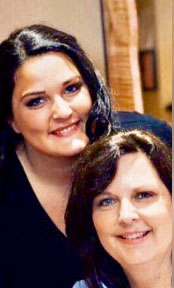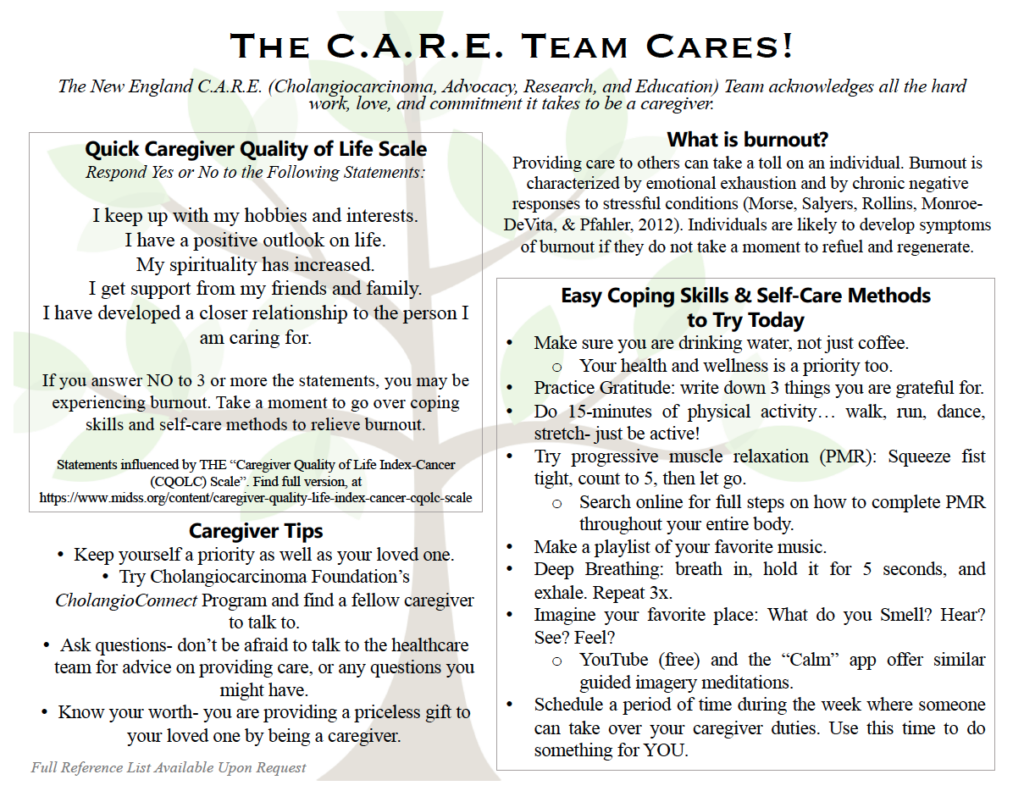
Caring for the Caregiver
Home / Blog Post / The woman who forgot today
Being a caregiver is the role of a lifetime. I think most of us take on this role without any hesitation. This was true in my case. Alongside my dad and sister, I took on the role of being one of my mom’s caregivers after her cholangiocarcinoma diagnosis.
As a nurse, my mom was able to manage her own care in a unique way. She knew when she needed which medications, which questions to ask her doctors, and her strength never wavered. Let’s just say, my mom, Kathy, taught us everything we needed to know in order to be successful caregivers. Being her caregiver was the most important role I have ever held. It provided me such peace knowing we were able to fulfill her wishes and care for her in our home until her passing. As I said, this may have been the most important role I’ve held, but it was also the most difficult. The role comes with constant fear, worry, and stress. Am I doing enough? Is my loved one okay? These questions run through your mind all day, and sometimes- all night.
My mom inspired me to enter the world of healthcare myself. I entered my graduate program to become an occupational therapist in 2018. Occupational therapy is a form of rehabilitation which focuses on overcoming the physical or mental barriers that are standing in the way of a patient’s ability to fulfill their meaningful life roles. Whether it is developing a treatment plan to overcome a mental health issue or post-operative rehabilitation care- occupational therapists cover it.
I am currently completing my degree with 24 weeks of fieldwork. These clinical rotations allow me to work full-time as a student therapist. My first placement was at a psychiatric hospital in my home state of Rhode Island. For my student project, I compiled research on caregiver burnout. The caregivers in my initial research were hospital staff who were experiencing burnout in the workplace. Quickly, I realized how occupational therapy interventions identified in my research could be applied to caregivers in any situation. My student project transformed into a personal research project for something I am passionate about- cancer caregivers. I created a one-page information sheet defining what burnout is, a scale to help identify if one is experiencing burnout, and some easy coping skills and self-care methods to help relieve symptoms of burnout.
Having been in the role of a caregiver, I know burnout happens more often than one would admit. Your focus is always on caring for your loved one, and that is okay. However, it is important to know that caring for yourself should be just as important. Maintaining your health will allow you to continue to provide the care your loved one needs. The Cholangiocarcinoma Foundation has provided me with an outlet to connect with other caregivers as a mentor in the CholangioConnect program and has recently allowed me to work with individuals with a similar goal to raise awareness and find a cure for cholangiocarcinoma through the C.A.R.E (Cholangiocarcinoma, Advocacy, Research, and Education) Team. These roles have given me the chance to not only focus on patient care and advocacy, but also a place to support fellow caregivers.

Author, Alyssa Plouff with her mom, Kathy.
